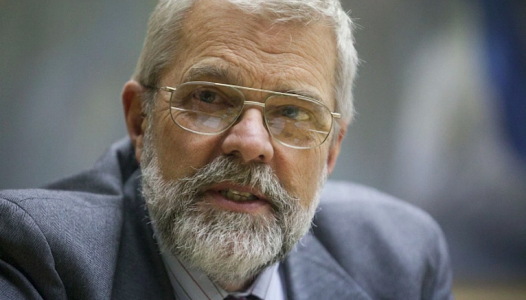On Wednesday, March 31, 2021 the Ethics in the Age of Digital Finance: Issues and Challenges event was held online, which was organised jointly by the Observatoire de la Finance (Geneva) and the Hoffmann Global Institute for Business and Society (INSEAD). From online banking to contactless payments and cryptocurrencies, financial technology – or FinTech – is rapidly impacting the financial services industry and those who must supervise and use it. The webinar presented an invaluable opportunity to engage in a meaningful discussion on how new technologies impact financial services and what the ethical opportunities and challenges are by the digitisation of finance. It also introduced the audience to the global Prize “Ethics & Trust in Finance for a Sustainable Future” that was initiated in 2006 by the Observatoire de la Finance. The Risk & Compliance Platform Europe also took part in this online event and covered it via its website. This is the final part in a series of three articles on this webinar.
There were several speakers that took part in the panel discussion, including leading experts representing viewpoints from academia and industry, as well as previous winners of the global Prize. They were the following:
- Stephane Bernard (Euroclear)
- Professor Paul Dembinski (Observatoire de la Finance & Uni Fribourg)
- Josina Kamerling (CFA Institute)
- Dr. Marta Rocchi (Dublin City University, previous Prize winner)
- Brett Scott (author, previous Prize winner)
These speakers were asked several questions about their perspectives on the topic at hand by the moderator of this webinar, Dr. Katell Le Goulven (INSEAD). There was also a Q/A session towards the end of the webinar where Dr. Le Goulven addressed some of the questions that the audience had for the speakers. The floor was then given to Josina Kamerling, who then shared some concluding remarks to bring the afternoon to an end.
So, Stephane, let’s begin with you. You are a big advocate of finance and on the ethical consideration of finance. You are also a Director at Euroclear. Can you tell us why an organisation like Euroclear cares about the issues that we are debating about today?
Stephane Bernard: “It’s a very broad question, but the answer is actually quite simple. Looking at ethics is also speaking about ethics and getting young people to explore, connect and reflect on ethical questions in an apparent, more accessible, inclusive, and honest manner is key to further foster and nurture the debate. It also allows for a space where young people start to pose good questions in the business, they are involved in on a day-to-day basis. I believe that it is key to support those types of initiatives and to listen to the next generation and being able to as a financial industry, to continue to attract talent to support our industry and serve our clients.”
Because of the in depth work you have been doing and looking into the interface of big tech and finance for several years, the following question I have is for you, Brett. What kind of new ethical issues do you see technologies introducing within finance?
Brett Scott: “There are many ethical issues. FinTech is becoming a major theme in financial reform communities, when this was previously not the case. But the basic way I would frame it is that when you are looking at FinTech, it refers to two separate forms of automation in finance. One part is the automation of financial professionals so the people who are sitting in the actual financial institutions making decisions.
But there is a second part of FinTech which is all about the ‘re-skinning’ of finance, so it’s about the outer layer and where the financial sector touches the people, as it were. And that consists of all the apps and all the kinds of digitalisation of the external layer of finance. And there is a lot of questions there about how it alters the mentality of the people who are approaching the financial sector, who historically have been in a much less powerful position than the financial institutions themselves. So, they are always at an information disadvantage.
There are a lot of new questions about whether this sort of ‘re-skinning’ of finance and this superficially slick layer around it formed by all these apps will potentially reduce ethical awareness of customers who might have previously has some awareness of what’s going on behind the scenes and whether it will potentially either reduce that or increase it.”
Marta, let me come to you now and ask you a foundational question about definitions. What kind of ethical inquiry do we need to address these new challenges raised by the digitalisation of finance?
Dr. Marta Rocchi: “I think that this is an essential question to ask when we talk about ethics in finance. I think that it is important to go back to the basics and define what ethics is. I would say that we can define ethics as the theoretical and practical study of human behaviour to achieve personal excellence and contribute to the good of society. But what we can see is that ethics is a philosophical discipline, and it suggests both a theoretical and practical reflection on the ultimate meaning of our actions.
We then need to apply all of this to the world of finance. There are so many ethical approaches. How can we choose the approach that is the best for the world of finance? There are also the approaches to ethics which provides a distinction between the approaches that are act centered and those approaches to ethics that are more person centered, or agent centered. The agent centered approach is more focused around the character of the person that makes the decisions.
So, I would say that for the ethics in finance as it is structured now, we need to take into account that we need to be very centered on the agent and to make the agent aware of the responsibilities that they have because this centrality of the human is still there, even if there is a lot of automation, as Brett mentioned.”
And does that have implications for education and the way we educate people?
Dr. Marta Rocchi: “I would say that this does have a very big impact on our educational systems. For ethics in finance, I would say that the combination between the impact of the Covid-19 pandemic and rising innovation will bring us to update our way of delivering education. We will need to keep teaching the basics because even if a lot of processes are automated, the people behind the processes need to understand how these machines operate. We also really need to have a standalone finance and ethics module in each program for continuous professional development that we have in finance or in higher education.”
So, we’ve had the perspectives from citizen engagement, activism, and from education. What I wanted to ask you, Stephane is: what does that mean for your company and for a financial institution like you? What are the new ethical challenges that a company like you is faced with?
Stephane Bernard: “I would say that it does not per se create ethical challenges for Euroclear. But based on the discussion, it goes in both directions. First you see an increased level of automation of digitisation and digitalisation and moving much more in the direction of self-serve and self-service, on the one hand. And on the other hand, it will as an industry help us to opt much more for a value-based approach. Linking back to the concept of moral distancing that was mentioned by Professor Paul Dembinski, it will increase our client interaction, increase client focus and increase client intimacy.
We know that the domains of finance, banking and insurance are more data driven. Hence, the increased and prominent use of roboticisation and the increased use of AI. The question will remain on how to integrate ethical challenges while increasing digitalisation in our financial industry. In the last 12 months, we have seen an acceleration in terms of digitalisation in the financial industry.
But looking at all this data management and all this AI, industry can become smarter and perhaps cheaper. But beyond the cost reduction, I see also a number of domains where we can contribute to reduce risks in industries that are not the most modern, such as for example, the tax domain. We see that there are a number of tax reforms and perhaps further digitalisation, further AI usage and leveraging more data, particularly for some European countries, would improve the capacity to collect the highest level of tax for the country that they are entitled to.
And last but not least, I would like to insist on the fact that in our industry much like in other industries, actors in a market are competing for products and services. But the market in general should look at ethical behaviour on an ethical dimension as something that is serving the common good in order to serve the society that we are living in.”
So, now I would like to get into some questions from the audience. I know that the CFA Institute did some research on whether we have a generational dimension to ethics in finance. So, Josina, could you perhaps give us some insight here on this. Is the new generation – younger people – more concerned about financial ethics?
Josina Kamerling: “There are a couple of things. We [the CFA Institute] did a study together with the Economist back in 2014 where we asked middle managers whether this is important and they all said: ‘yes, the ethics code is important, but I’m going to be flexible with it if I have to promote my career’.
In the meantime, the CFA Institute has been doing yearly invest in trust studies and what is apparent is that investing in trust in financial services has moved up. It used to be lowest on the scale, even below media, and that’s saying a lot. But it is still not where it should be. And in the last study we carried out before the Covid-19 pandemic hit, which was published in March 2020, you saw that there was trust, but that young people paradoxically trusted the digital world and anything which came through an app more. And older people – baby boomers – trusted personal financial advice more.
However, the perception from the majority of the respondents in the study were very uneasy about the next potential financial crisis. That was before the pandemic and now, we are in a very challenging environment. And to add to that, the Edelman Trust who we used to work with came out with their own study on society this year. What was interesting about that study they did was that we are also in a societal shift where people are trusting the companies, they work for more than they trust governments where they see that companies have to lead on societal issues.
Now that goes back to the sustainable world, we’re in. But can we really democratise companies? They’re responsible to the shareholders. To add to that, the European Parliament came out with a study on what they expect in a post-Covid world. So, they provided four scenarios: ethical capitalism, competitive capitalism, corporate governance or strategic autonomy. Now the question becomes: which way do we go?”
Now we have a question here for you, Paul. In your presentation, you mentioned ‘getting behind the data to get to reality’. Can you please give an example to further elaborate on what that means?
Professor Paul Dembinski: “Let me just give an example of a recent study that we did on bankruptcies. If you check the banking statistics on bankruptcies, bankers whom I met look at figures on their dashboards without asking or trying to investigate the cause behind the bankruptcy. One way of behaving is looking at the statistics for answers and another way of behaving is to understand what is going on and what can be repaired.
So, this is sticking to figures and to graphs and forgetting that there is a reality behind the graphs. The point here is to understand what the figures represent and to what they do not capture. And to what extent between what they capture and do not capture, is there room for action that can be business motivated, or ethics motivated.”
Finally, I have a general question that anyone of you can take. Is there a space or place that you would suggest people to obtain more food for thought and continue to monitor the conversation about this topic?
Brett Scott: “One of the biggest weaknesses right now in most analysis around finance tends to be around monetary understanding. This is probably most viscerally witnessed in the sheer amount of disinformation that spreads around cryptocurrency. And unfortunately, this type of information is going mainstream, so I think I would encourage anybody interested in getting into these topics to be open-minded, but also to go deep into critical monetary theory, including anthropology of money as a basis to understand finance more deeply. By doing so, you can then make decisions and sound judgements about finance.”
Professor Paul Dembinski: “I think that one of the most interesting lesson materials is reading the Daily Press. What you see is that many of the ethical questions are hidden somewhere in this material. You have to figure out what the ethical dilemmas are that people are facing. Some of them have identified the dilemma and others have bypassed it.
I think reading the Daily Press and asking questions like: what were the situations on which ethical issues were at stake? And to what extent did different actors recognise them, either as regulators, as shareholders or board members, or as young professionals, etc? So, I think that this is an excellent exercise to make the ethical awareness clearer and more forceful in your daily, professional life.”
Conclusion
Josina Kamerling concluded the webinar and stated that we are at a changing time in society. She stated that people are not only reflecting on whether finance should be for the common good of society. The European Union is also reflecting on this question and companies are also now repurposing themselves as companies with a mission for the good of society. So, as she claimed, this world is refocusing and it’s not just about climate change; it’s about the future of our societies and about how we all interact with each other.
She then brought up digitalisation and how it is both a tool and a danger point. On the one hand, it is a tool that can be optimised for cost cutting. She believes that it is important to realise that ethical behaviour is leading us to be true human beings living with our footprint in this world. It’s not entirely about shareholder value anymore, as she claimed, but the debate is enlarging to the stakeholder concept. And this stakeholder concept means how we interact with each other and what we do with the economy for each other. Josina Kamerling believes that that is where the ethics debate is really centered upon, on change in society.





